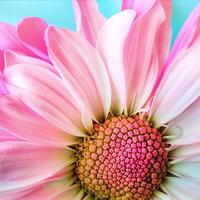清明节 ,让 我们 踏青 去
下周一 ,4 月 5 日 , 是 中国 的 二十四节气 之一 , 清明节 。
清明节 是 我国 的 传统节日 , 也 是 最 重要 的 祭祀 节日 , 是 祭祖 和 扫墓 的 日子 。
扫墓 俗称 上坟 , 是 祭祀 死者 的 一种 活动 。
按照 旧 的 习俗 , 扫墓 时 , 人们 要 携带 食品 水果 等 物品 到 墓地 , 将 食物 供奉 在 亲人 的 墓 前 , 并且 为 坟墓 培上 新土
折 几枝 嫩绿 的 新枝 插 在 坟 上 , 然后 叩头 行礼 祭拜 。 至今 为止 , 中国 人 仍然 会 在 清明 前后 去 探望 已经 失去 的 亲人 , 寄托 哀思 。
清明 也 是 一个 踏青 的 好日子 。 在 北京 , 也 有 一些 鲜花 迫不及待 的 开放 了 。
山 桃花 绽开 了 粉红 的 花朵 , 长安街 旁 的 玉兰花 也 已经 含苞待放 , 湖边 的 柳枝 开始 变得 柔软 并且 透出 淡淡的 绿色 。
在 这样 美好 的 春光 里 , 人们 往往 要 到 郊外 去 踏青 , 并且 展开 一些 体育 活动 。 最 常见 的 就是 放风筝 。
清明 时节 , 天气 变暖 , 雨水 逐渐 变多 , 万物 开始 复苏 。 这 也 是 一个 植树 的 好 时候 。 古人 经常 在 清明节 期间 “ 插柳 ”。
我们 更 应该 继承 这个 传统 , 在 春天 到来 的 时候 , 多 植树 , 改善 我们 的 生活 环境 , 创造 更 美好 的 未来 。
最后 , 不得不 提 的 是 关于 清明节 的 一首 古诗 。
因为 它 太 有名 , 几乎 每个 中国 人 都 能 吟诵 。 这是 唐朝 诗人 杜牧 写 的 《 清明 》:
清明 时节 雨 纷纷 , 路上行人 欲 断魂 。
借问 酒家 何处 有 ? 牧童 遥指 杏花村 。

